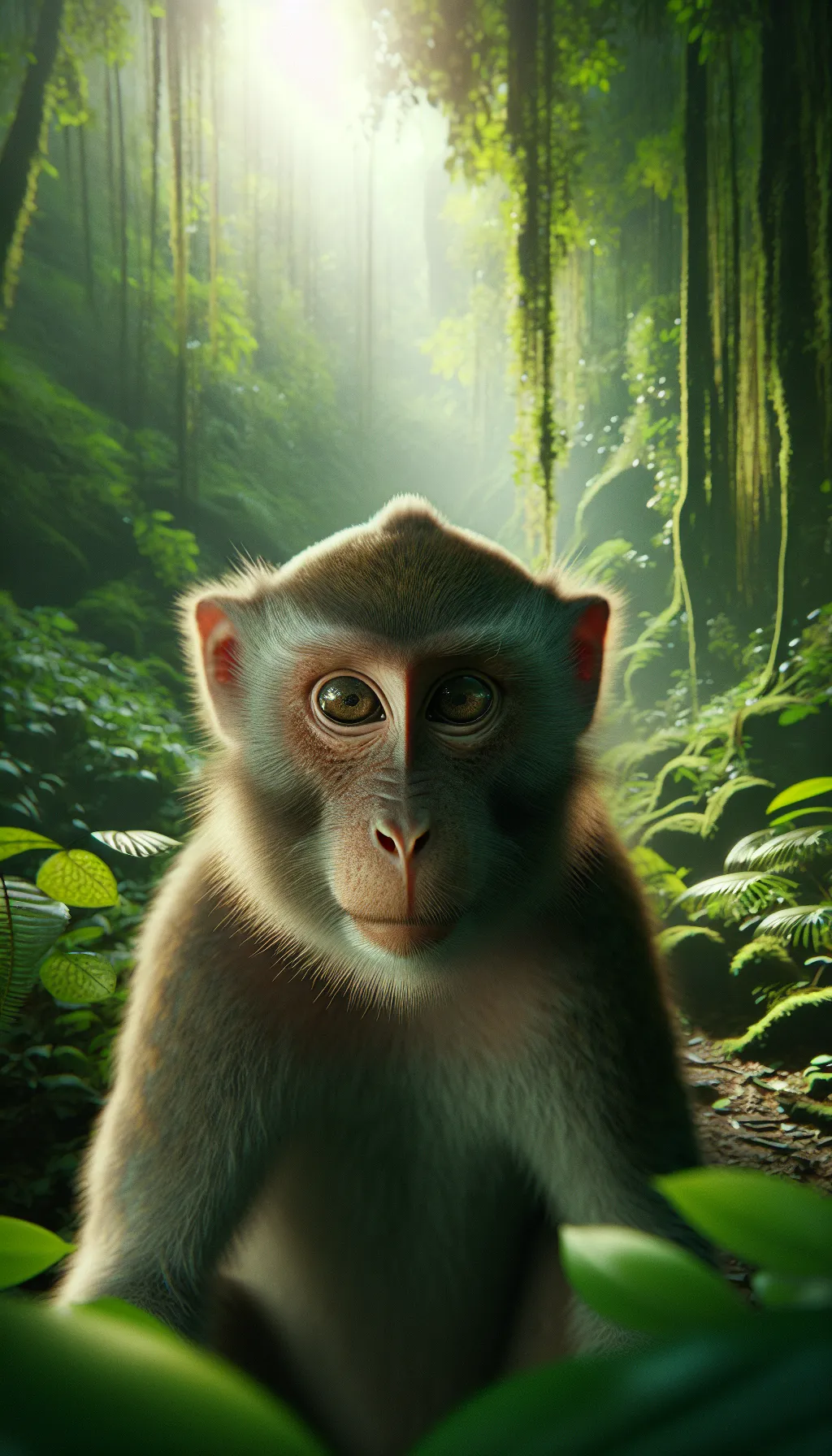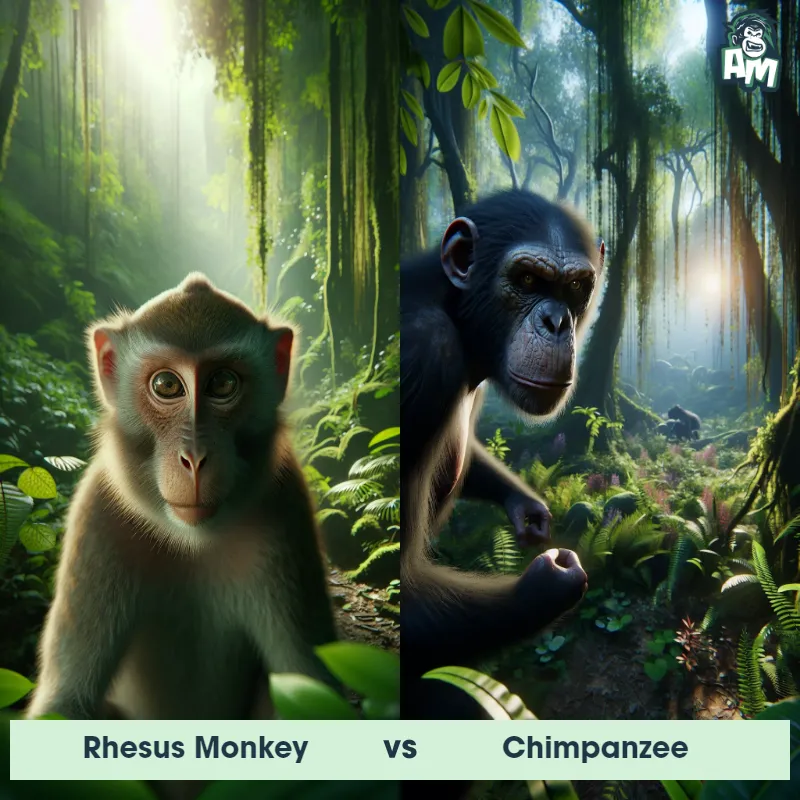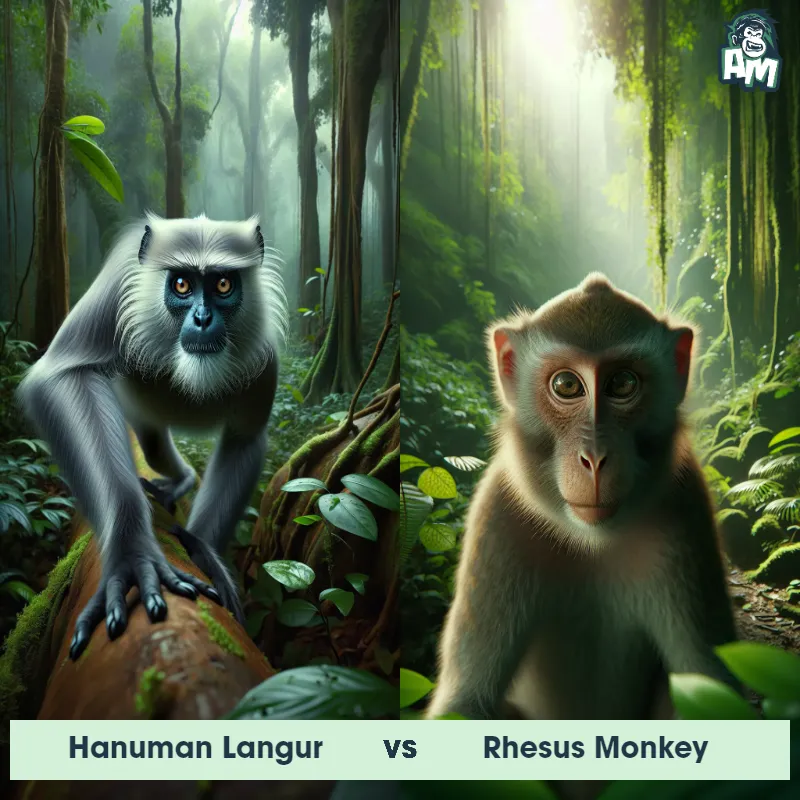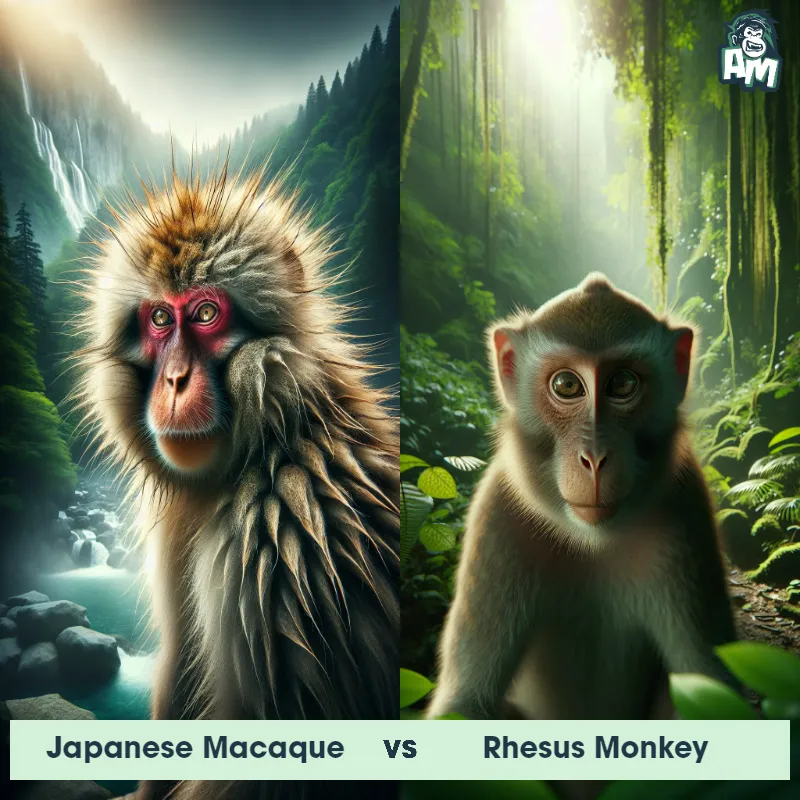The Rhesus Monkey
The Rhesus Monkey, also known as Macaca mulatta, is a medium-sized primate native to South and Central Asia. They have a distinctive appearance with a pink or reddish face, olive-brown fur, and a long tail. These highly social monkeys are known for their adaptability and can be found in various habitats, including forests, grasslands, and urban areas. Rhesus Monkeys are known for their intelligence and complex social structure, living in groups called troops that may consist of up to 200 individuals.

| Rhesus Monkey | |
|---|---|
| Size | 17-25 inches (43-63.5 cm) |
| Weight | 12-17 lbs (5.5-7.7 kg) |
| Speed | 33mph (53km/h) |
| Key Strength | Strong bite force |
| Biggest Weakness | Vulnerable to larger predators |
| Scientific Name | Macaca mulatta |
| Family | Cercopithecidae |
| Habitat | Forests, grasslands, urban areas |
| Geography | South and Central Asia |
| Diet | Omnivorous |
| Lifespan | 20 years - 30 years |

The Rhesus Monkey
The Rhesus Monkey, also known as Macaca mulatta, is a medium-sized primate native to South and Central Asia. They have a distinctive appearance with a pink or reddish face, olive-brown fur, and a long tail. These highly social monkeys are known for their adaptability and can be found in various habitats, including forests, grasslands, and urban areas. Rhesus Monkeys are known for their intelligence and complex social structure, living in groups called troops that may consist of up to 200 individuals.
Fun Fact: Rhesus Monkeys are excellent swimmers and are known to skillfully dive into water bodies to forage for food or escape predators.
| Rhesus Monkey | |
|---|---|
| Size | 17-25 inches (43-63.5 cm) |
| Weight | 12-17 lbs (5.5-7.7 kg) |
| Speed | 33mph (53km/h) |
| Key Strength | Strong bite force |
| Biggest Weakness | Vulnerable to larger predators |
| Scientific Name | Macaca mulatta |
| Family | Cercopithecidae |
| Habitat | Forests, grasslands, urban areas |
| Geography | South and Central Asia |
| Diet | Omnivorous |
| Lifespan | 20 years - 30 years |
Rhesus Monkey Matchups
We use AI to simulate matchups between the Rhesus Monkey and other animals. Our simulation considers size, strength, and natural predatory behaviors to determine the most likely outcome.

Can't find the Matchup you want?
Create Your Own MatchupRhesus Monkey: Diet, Predators, Aggression, and Defensive Behaviors
What do Rhesus Monkeys eat?
Rhesus monkeys are omnivores and have a varied diet. They primarily feed on fruits, leaves, seeds, and flowers. However, they also consume insects, small mammals, and occasionally bird eggs. This flexible diet allows them to adapt to different environments and find food sources easily.
Do Rhesus Monkeys have any predators?
Yes, Rhesus Monkeys have several predators in the wild. Predators of these monkeys include large birds of prey, such as eagles and hawks, as well as predators on the ground, such as leopards, pythons, and wild dogs. These predators pose a threat to the survival of Rhesus Monkeys, especially when they are young or vulnerable.
Are Rhesus Monkeys aggressive?
Rhesus Monkeys are known to exhibit aggressive behavior, especially in situations where they feel threatened or challenged. They have a strict hierarchy within their social groups and often use aggression to establish dominance or defend their territory. However, they can also show affection and form strong social bonds with other group members.
Do Rhesus Monkeys fight?
Yes, Rhesus Monkeys engage in fights, particularly among males competing for dominance within the group. These fights can be intense and involve physical aggression, such as biting, scratching, and vocalizing loudly. Fighting is a common behavior in Rhesus Monkey social interactions and is used to establish social status.
How do Rhesus Monkeys defend themselves?
Rhesus Monkeys have several defense mechanisms to protect themselves from predators and threats. They often rely on their agility and speed to escape danger by climbing trees or running away. They can also vocalize loudly to warn other group members of potential dangers and work together to form a united defense against predators.
What is the biggest weakness of Rhesus Monkeys in a fight?
One of the biggest weaknesses of Rhesus Monkeys in a fight is their relatively small size compared to some of their predators or aggressive competitors. Despite their agility and strength, they can still be overpowered by larger predators or rivals in physical confrontations. Additionally, their hierarchical social structure can lead to internal conflicts that weaken their defense against external threats.
Fun Fact: A remarkable characteristic of Rhesus Monkeys is their ability to adapt to challenging environmental conditions, such as extreme cold or high altitudes. They have been observed living in regions with temperatures as low as -20°C -4°F.
Fun Fact: Rhesus Monkeys are known for their mischievous behavior and their propensity for stealing. They have been observed snatching food, drinks, and even personal belongings from unsuspecting humans, making them quite skilled thieves.













